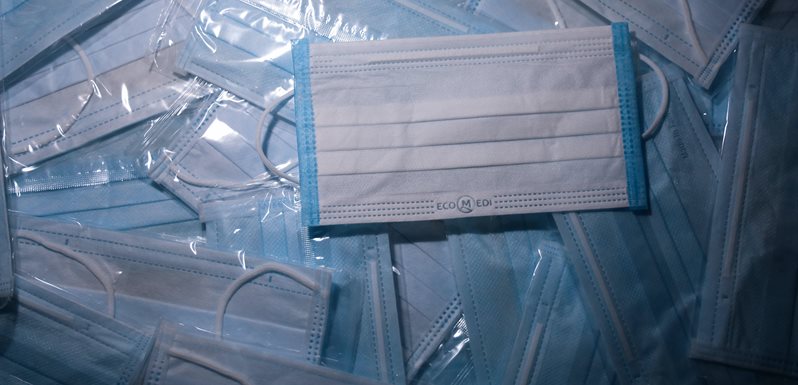According to a new study published in the Journal of the Royal Society of Medicine, the carbon footprint of personal protective equipment (PPE) provided to health and social care staff in England during the first six months of the Covid-19 pandemic was equivalent to flying from London to New York 244 times every day. The good news is that adopting a range of strategies including increased UK manufacture, reusing and recycling could reduce the environmental impact of PPE dramatically while maintaining the safety of staff and patients.
The study, by Brighton and Sussex Medical School and Brighton and University Hospitals Sussex NHS Foundation Trust, found that the 3 billion items of PPE used from February to July last year generated 591 tonnes of carbon dioxide a day, or 27,000 times the average individual’s carbon footprint. The 1.8 billion gloves used had the biggest environmental impact, followed by aprons, face shields and masks.
The study also suggested ways in which PPE use in the future could lessen environmental impact. This includes reusing gowns and face shields where possible, recycling PPE waste, and manufacture of PPE in the UK. But the biggest impact could be through reducing the volumes of PPE used, for example using hand-washing instead of wearing gloves.

Adopting a range of strategies could reduce the environmental impact of PPE dramatically while maintaining the safety of staff and patients
Chantelle Rizan, a doctor in the NHS, honorary clinical teaching fellow and PhD candidate at BSMS and research fellow at the Royal College of Surgeons of England, led the study. She said: “Covid-19 has impacted many aspects of life. Ours is the first study to look at the environmental harm of using PPE on such scale, and the results are concerning. However, a combination of strategies could have reduced the carbon footprint by 75%. We are not advocating actions that could increase risk of infection, however, guidelines around use of PPE aren’t always consistent or up to date with the latest science. It may be perfectly safe to wash hands rather than use gloves in many situations, and that is something that needs further exploration.”
Professor Neil Mortensen, President of the Royal College of Surgeons of England, said: “It’s clear the virus will be with us for some time yet, so the need for PPE to keep staff and patients safe is still paramount. But the findings of this new study are sobering, and we must also consider how to reduce the environmental impact of PPE, including making greater use of reusable items or how PPE and other plastic healthcare waste can be recycled – something the College’s Sustainability in Surgery working group is looking at.”
The study has been published in the Journal of the Royal Society of Medicine and can be accessed here >